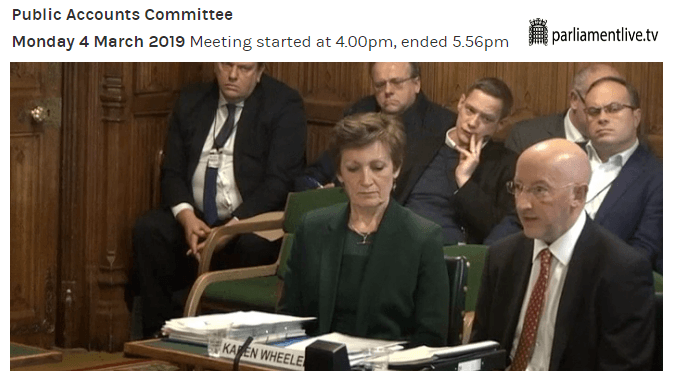MPs were told by HMRC at yesterday’s Public Accounts Committee (PAC) hearing that the BBC is responsible for the tax scandal that has left hundreds of freelance presenters facing retrospective tax bills.
HMRC’s IR35 lead Jim Harra pointed the finger at the BBC, describing its previous employment status practices as “quite a bit adrift”, in an attempt to justify inconsistencies between status outcomes returned by HMRC’s Check Employment Status for Tax (CEST) tool, and assessments conducted prior to CEST’s release.
‘CEST isn’t broken, BBC’s practices are broken’ - HMRC
In November 2018, a National Audit Office (NAO) report revealed that CEST’s evaluation of 663 BBC freelancers found a staggering 92% to be ‘employed for tax purposes’. This marked a sharp and contentious uptick when compared with the outcomes reached using the broadcaster’s previous practices.
However, when questioned on the results issued by CEST, Harra took aim at the BBC’s processes, which included following HMRC-issued radio industry guidelines, and applying an employment status test which had been developed in liaison with HMRC.
During the hearing Harra noted: “There has been extensive engagement between HMRC and the BBC over a number of years. We have worked with the BBC to provide guidance that’s relevant to the media.”
“BBC recently admitted to the part it has played in this mess, yet HMRC has, predictably, refused to acknowledge that it or its broken CEST tool are to blame,” says ContractorCalculator CEO Dave Chaplin.
“Rather than accept the possibility that the extremely dubious results were down to fundamental issues with CEST, HMRC has simply accused the BBC of incorrectly applying HMRC-approved status assessment practices. CEST-users beware, this could soon be your fate.”
HMRC’s warning for other CEST users
Harra also told MPs that: “The answer that CEST gives is only as good as the quality of the input”, while stressing that simply using CEST won’t necessarily mean HMRC won’t investigate if it suspects there is tax to be claimed.
When asked exactly what hiring organisations need to do to ensure that their interpretation of CEST’s questions are correct according to HMRC, Harra responded: “They need to have systems and processes in place that will withstand our scrutiny. What we will look at is the process that businesses follow internally to make sure that they are entering the true facts into the tool.”
For Chaplin, Harra’s response leaves a lot of questions unanswered: “This is a rather vague answer, and I’m sure private sector firms will be eager to find out exactly what the taxman expects of them in the near future. In any case, how HMRC expects to conduct such evaluations of the processes of all users of CEST is anybody’s guess.”
Which ‘experts’ gave CEST the green light?
While Harra was resolute in his defence of CEST, he was unable to lend any assurance when pressed on the tool’s accuracy and testing history. Harra conceded that, during the testing process, CEST wasn’t required to meet any calculable threshold to be passed fit for purpose, instead stating:
“There was no threshold in terms of incorrect answers that we tolerate. What we have tolerated is a threshold of cases where the tool cannot give you an answer.”
In response, Chaplin highlights: “Harra has essentially acknowledged that HMRC conducted testing with no regard for the correct answer. As long as accuracy isn’t a concern, why not determine your IR35 status with a coin flip?”
Harra said that CEST’s accuracy had been determined through experts confirming that they agreed with its results. Upon further probing, Harra admitted that the experts in question were, in fact, members of HMRC’s employment status team.
“It’s absolutely astonishing that no external authority was consulted prior to CEST’s launch,” concludes Chaplin. “Given HMRC’s poor record in IR35 tax tribunals, and its failure to grasp the concept of mutuality of obligation (MOO), to act purely on the advice of these so called ‘experts’ is dangerous, both for the tax authority itself and for those unfortunate enough to be investigated.”

